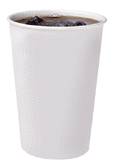
THURSDAY, Dec. 16 (HealthDay News) — A new U.S. study finds that 75 percent of children consume caffeine daily, largely through sodas. And the more caffeine they consumed, the less they slept.
Researchers at the University of Nebraska Medical Center surveyed the parents of more than 200 children, aged 5 to 12, during routine clinical visits at a pediatric clinic. The parents were asked about the types and amounts of snacks consumed by their children each day.
Children between the ages of 8 and 12 took in an average of 109 milligrams of caffeine a day, the equivalent of 3 12-ounce cans of soda. While younger children consumed less caffeine, some as young as 5 had the equivalent of a can of soda a day.
While caffeine was associated with sleep problems, it was not linked to bedwetting, said the study in the Journal of Pediatrics.
“Contrary to popular belief, children were not more likely to wet the bed if they consumed caffeine, despite the fact that caffeine is a diuretic,” study co-author Shelby Evans said in a journal news release.
“Parents should be aware of the potentially negative influence of caffeine on a child’s sleep quality and daily functioning,” study author Dr. William Warzak said in the news release.
He and his colleagues suggested that pediatricians could educate parents about the potentially harmful effects of caffeine in children and ask about patients’ caffeine consumption.
More information
The Nemours Foundation has more about children and caffeine.

